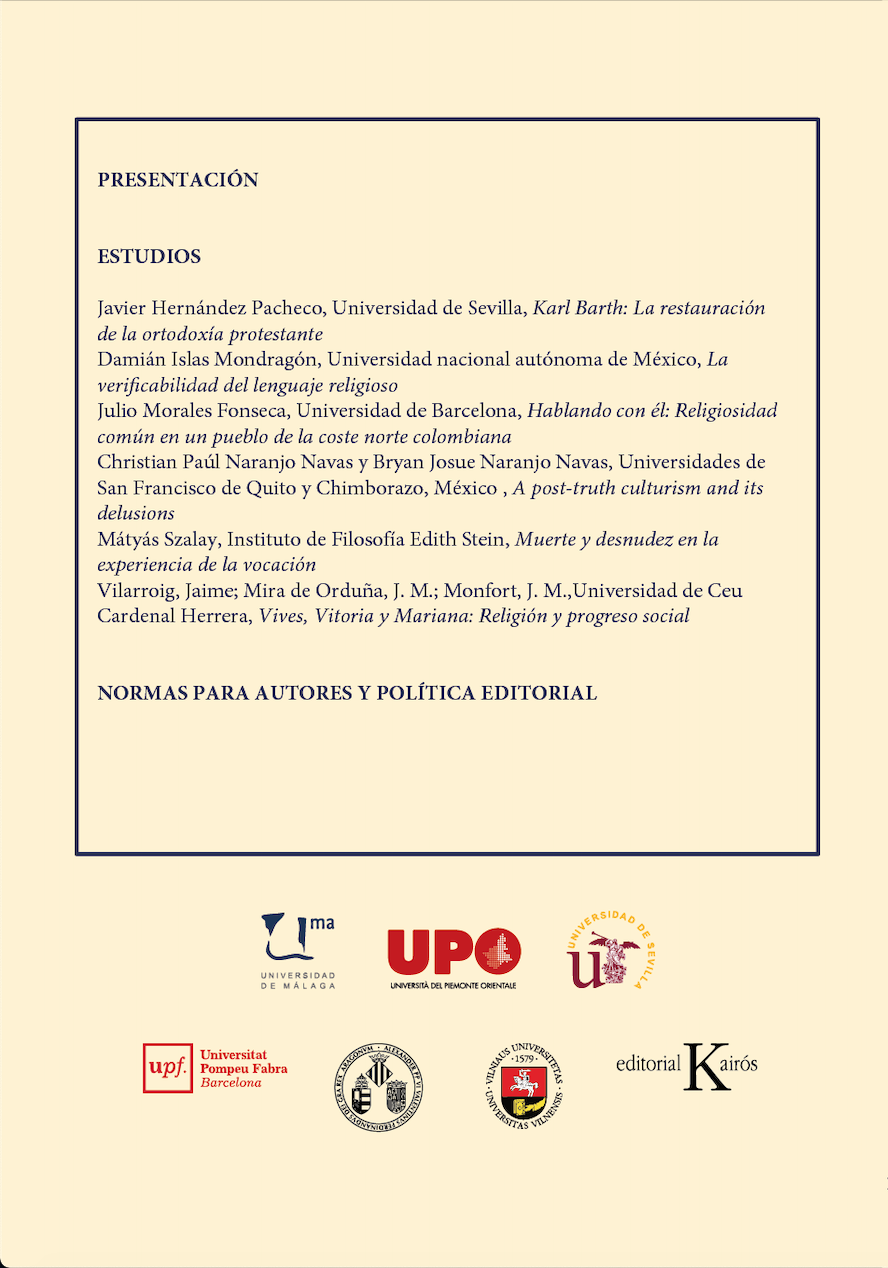THE VERIFIABILITY OF RELIGIOUS LANGUAGE: A PHILOSOPHICAL ANALYSIS
DOI:
https://doi.org/10.24310/Raphisa.2019.v0i5.6212Keywords:
MYSTICAL EXPERIENCIE, YOGA, RELIGIOUS LANGUAGE, EMPIRICAL VERIFIABILITYAbstract
Mystical experiences and the knowledge they produce are communicated through a religious language. In this text I will present a case study of a yogic tradition in northern India, Surat Shabdt Yoga, which is practiced in order to obtain this type of experience. From the point of view of the verificationist theory of meaning developed by Alfred J. Ayer, the religious language has no meaning. My objective is to analyze and evaluate the verification theory and show that it not only refutes itself; it also exhibits certain logical, empirical and cognitive inconsistencies that weaken it as a good criterion to evaluate the significance of religious language. I will argue that instruments and methods of verification are constrained to our specific abilities, limits, expectations and cognitive interests; so that the truth value of the factual content of religious statements cannot be decided undoubtedly.
Downloads
Metrics
References
Ayer, Alfred. Language, Truth and Logic, New York, Dover Publications, 1936.
Gellman, Jerome. “Mysticism and Religious Experience”. En William J. Wainwright (ed.) The Oxford Handbook of Philosophy of Religion, Oxford, Oxford University Press (2005), pp. 138-167.
Hempel, Carl. “Studies in the Logic of Confirmation”. Mind, Vol. 54, No. 213, (1945), pp. 1-26.
Maimonides, Moses. The Guide of the Perplexed. Chicago, University of Chicago Press, 1963.
Martin, Michael. “The Verificationist Challenge”. En Charles Taliaferro et al (eds.) A Companion to Philosophy of Religion, Sussex, Blackwell Publishing (2010), pp. 458-466.
Nyssa, Gregory. Contra Eunomium II, Leiden, Brill, 2007.
Pseudo Dionisio. On The Divine Names and The Mystical Theology, New York, The Macmillan Company, 1920.
Soami, Hazur. Sar Bachan. Amritsar, Radha Soami Satsang Beas, 1983.
Wierenga, Edward. “Philosophy of religion”. En John V. Canfield (ed.) Philosophy of Meaning, Knowledge and Value in the Twentieth Century, London, Routledge (1997), pp. 292-304.
Downloads
Additional Files
Published
How to Cite
Issue
Section
License
License permitted by the journal: Public Domain. Authors retain the copyright and full publishing rights without restrictions.






